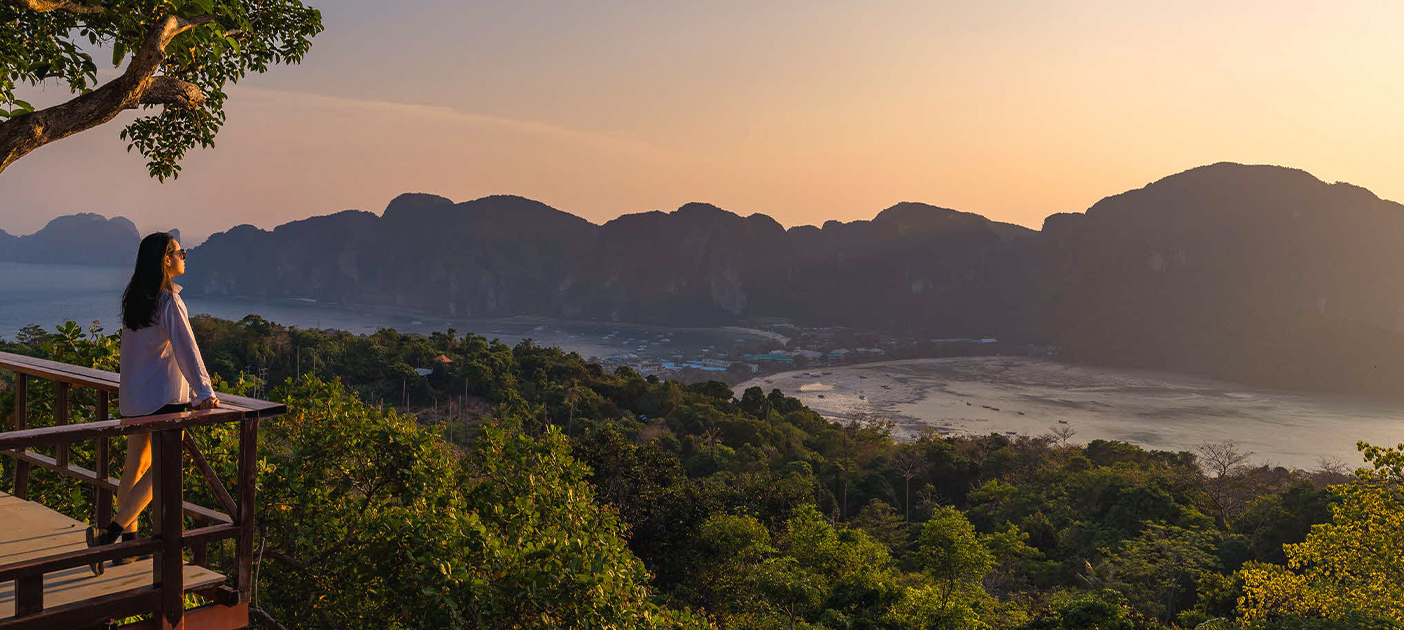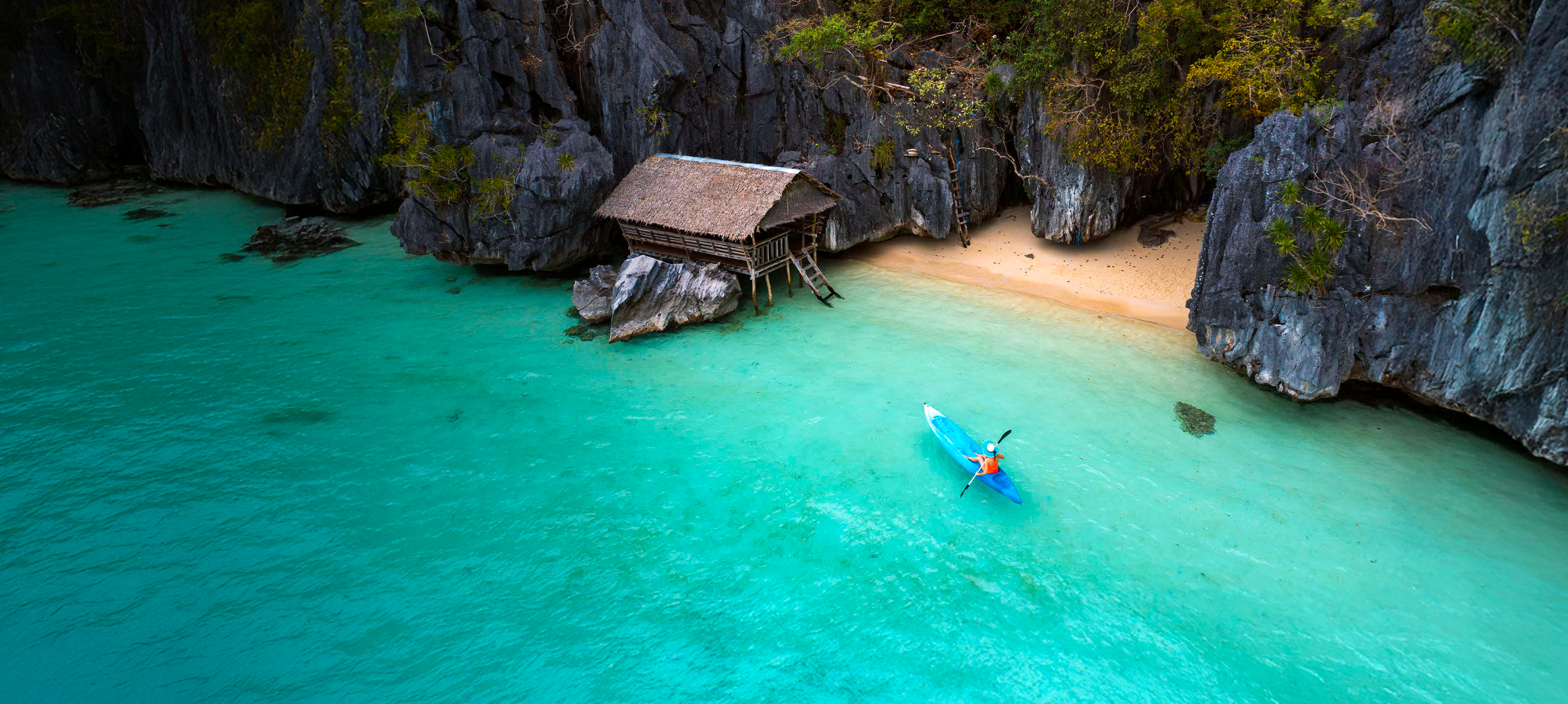Sustainable travel made simple
![]()
If you’ve only got a minute:
- Sustainable travel doesn’t have to be expensive – smart planning and conscious choices can help save money and minimise your environmental impact.
- Prioritise eco-friendly accommodations, transportation, and activities, to reduce your carbon footprint and support local communities.
- Embrace slow travel for more meaningful and budget-friendly experiences, fostering deeper cultural connections while reducing carbon emissions.
![]()
This article was produced in partnership with TripZilla.
Travel is one of life’s greatest joys, offering opportunities to discover new cultures, immerse yourself in nature, and broaden your perspectives. However, it is important to acknowledge the potential environmental and social impact of our journeys.
Sustainable travel, also known as eco-tourism, green travel, and responsible tourism, prioritises choices that minimise environmental harm while maximising benefits to local communities and ecosystems.
Careful planning not only protects our planet but also safeguards the beauty and diversity of destinations for future generations.
The good news?
Travelling sustainably doesn’t have to be expensive. With mindful and intentional planning, you can create richer, more meaningful, budget-friendly experiences.
Here are 7 considerations to help you plan your next holiday responsibly, creating lasting memories while saving money and doing your part in creation care.

1. Where and when
Choose destinations and travel times that minimise your environmental impact.
Eco-conscious destinations like Copenhagen and Amsterdam offer efficient public transport systems and extensive cycling infrastructure, allowing visitors to easily explore the city using the metro, buses, or bicycles. This reduces your reliance on cars, helping to lower your carbon footprint while also supporting the local communities like bike tours and rental shops.
Consider lesser-known locations or “destination dupes” as alternatives to overcrowded hotspots. This reduces strain on popular tourist areas, supports local communities, and often provides more affordable and authentic experiences. For example, explore islands like Nusa Penida or Flores instead of Bali’s overcrowded beaches, which retain the charm of Indonesia’s tropical allure while offering a quieter, less-crowded experience.
Travelling during off-peak seasons reduces strain on local resources, often resulting in lower prices for flights, accommodations, and attractions. For example, visiting Kyoto during early spring instead of peak cherry blossom season allows you to enjoy the serene beauty of the city without the overwhelming crowds. You’ll also have a more immersive experience in iconic spots like the Kiyomizu-dera Temple with fewer tourists jostling for space.
To complement your sustainable travel choices, go cashless with the DBS Travel Wallet. Whether you’re paying for food, souvenirs or other local experiences, the DBS Visa Debit Card linked to your multi-currency account allows you to spend seamlessly in 11 currencies. With up to 5% cashback on overseas spending, instant currency exchange at competitive FX rates on the digibank app, you can explore sustainably while ensuring convenience and great value.
Find out more about: DBS Travel Wallet

2. Budgeting and planning
When budgeting and planning for your trip, prioritise sustainable choices. You may be surprised at how this can potentially lower your overall costs.
Set a realistic budget encompassing flights, accommodations, activities, food, and transport. Listing out your expected expenses upfront helps ensure that you can enjoy your trip the way you want to while still being mindful of your spending.
Don’t forget to pack light. This not only makes moving around more convenient but also helps reduce additional baggage fees, and the environmental impact associated with transporting excess weight.
When selecting your accommodation, look out for eco-certified establishments that implement energy saving measures. These include using solar panels, energy efficient lighting, water saving fixtures, or following waste management practices like recycling or composting.
Budget-friendly alternatives like hostels or homestays may not always have formal eco-certifications, but that does not mean they don’t practice sustainability. Listings on platforms like Airbnb often detail how they incorporate sustainable measures – some may focus on water and energy conservation, provide locally sourced food, or even offer cultural activities that support the local community.
These days many travellers embrace slow travel, prioritising deeper immersion at a more relaxed place in fewer destinations. Slow travel fosters deeper cultural connections, often saving money and promoting a more rejuvenating holiday.
For example, in Europe, consider train journeys such as the iconic Glacier Express in Switzerland which offers a scenic journey from Zermatt to St. Moritz, winding through the Swiss Alps and providing passengers with stunning views that you cannot experience from the air. This allows you to save money while reducing your carbon footprint, as modes of travel like trains emit significantly fewer greenhouse gasses as compared to flights.
Using travel aggregators like the DBS Travel Marketplace which allow you to compare prices efficiently and find the best deals that suit your travel goals, from budget-friendly stays to luxury hotels, all in one place.
Read more: 10 money management tips for your holidays
Find out more about: DBS Travel Marketplace
3. Choosing your activities
To minimise your environmental impact and maximise your travel experience, plan your daily activities to be within walking distance of one another whenever possible. This allows for more opportunities to discover hidden gems which are often missed with using cars or public transport.
For example, when visiting vibrant cities like Penang and Tokyo, walking between attractions gives you the chance to notice easily overlooked details like murals on alley walls, charming local cafes, and unique shops.
Embrace activities that enrich your cultural immersion. Hiking, visiting parks, or relaxing on a beach are not only budget-friendly but also provide a deeper connection with the local environment and landscape. Similarly, visiting public museums and local markets open a window into the history, traditions, and artisan crafts of a region, while also supporting the local vendors and community.
Eating at locally owned restaurants or street food vendors helps to support small businesses and reduces the carbon footprint associated with imported goods. For example, when in Vietnam, choose a family-run eatery serving pho instead of an international chain. This sustainable approach offers an authentic culinary experience while keeping your travel budget in check.
Read more: How to make your holiday more affordable

4. Go cashless
Opting for cashless payments not only offers convenience but is also a greener choice. The environmental cost of printing, transporting, and handling physical currency adds up, while digital transactions reduce the need for these processes. By choosing to go cashless, you play your part in lowering the carbon footprint associated with currency production.
One practical way to go cashless while travelling is by using the DBS Travel Wallet. Simply link your DBS Visa Debit Card to your multi-currency account (MyAccount or Multiplier Account) as the primary debiting account to access 11 different currencies with zero foreign exchange conversion fees.
Just remember to keep sufficient foreign currency in the respective currency pockets for your spending amounts to be debited. This allows you to make seamless, eco-friendly payments in different countries without the need for exchanging or carrying large amounts of cash around.
The DBS Travel Wallet also allows you to set spending limits and selectively enable card transaction functions while you are overseas, all with a few simple taps on your digibank app. It’s a sustainable choice that offers you card security, convenience, and competitive exchange rates for your travels.
Read more: What can I do with my foreign currency?
Find out more about: DBS Visa Debit Card – Your Multi-Currency Card
5. Give back
Sustainable travel isn’t just about minimising your negative impact, but also actively contributing to the wellbeing of the communities you visit. This involves supporting local economies by patronising the local business and volunteering your time, directly benefitting the people, and preserving local traditions.
When buying souvenirs, choose handmade souvenirs sold by local artisans rather than mass-produced ones. For example, in Peru, purchasing alpaca wool scarves from indigenous weavers helps support traditional craftmanship and sustains the local economy. These unique, often ethically sourced items also make for more meaningful mementos.
Instead of booking commercial tours, opt for small locally run operators that offer city or hiking tours. In Taiwan, for example, you can explore the island’s natural beauty through guided hikes in Taroko Gorge, or take a walking tour of Taipei’s vibrant night markets. These local tours provide a more personalised and authentic experience, allowing you to immerse yourself in the culture and landscape.
Participate in environmental conservation projects or social initiatives that give you an opportunity to protect the natural beauty of these destinations. In places like Costa Rica, you can support animal and sea turtle conservation programs by participating as a volunteer or donating to local nature reserves.
Giving back fosters cultural exchange, promoting understanding and respect, and helps distribute the benefits of tourism more equitably, reducing the strain on popular sites. Ultimately, contributing positively ensures these destinations remain vibrant and welcoming for years to come.

6. Reduce waste and go green
Minimise single-use plastics by carrying reusable water bottles, utensils, and shopping bags. Many countries, like Japan with its readily available refill stations, offer convenient alternatives. You can make use of digital apps to help you locate these water stations, supporting a low-waste trip.
Embrace digital ticketing and paperless travel options wherever possible. Many transport systems and attractions now offer mobile or e-tickets, significantly reducing paper wastage associated with physical tickets. Cities like Singapore and Barcelona are prime examples of this trend. Remember to ensure your documents and tickets are available offline so that you can still access them in the event your phone loses connectivity.
7. Safeguard your trip
As sustainable travel often includes outdoor activities or visits to remote locations, comprehensive travel insurance is all the more a must. Policies like TravellerShield Plus provide essential protection against unexpected events such as trip cancellations, lost baggage, or medical emergencies.
With adequate coverage, you can embrace your eco-friendly adventures with peace of mind.
Read more: Insure your travels for peace of mind
Find out more about: Pack for peace of mind this holiday
In summary
The overlap between smart budgeting and sustainability is a powerful reminder that we can travel in a way that both enriches our lives and protects the planet. While a complete overhaul of our habits is not necessary, every sustainable choice makes a difference.
By travelling responsibly today, we ensure future generations can continue to explore the wonders of the world, leaving behind a positive legacy for those who come after us.
Ready to start?
Check out digibank to analyse your real-time financial health. The best part is, it’s fuss-free – we automatically work out your money flows and provide money tips.
Speak to the Wealth Planning Manager today for a financial health check and how you can better plan your finances.
Disclaimers and Important Notice
This article is meant for information only and should not be relied upon as financial advice. Before making any decision to buy, sell or hold any investment or insurance product, you should seek advice from a financial adviser regarding its suitability.








That's great to hear. Anything you'd like to add? (Optional)
We’re sorry to hear that. How can we do better? (Optional)